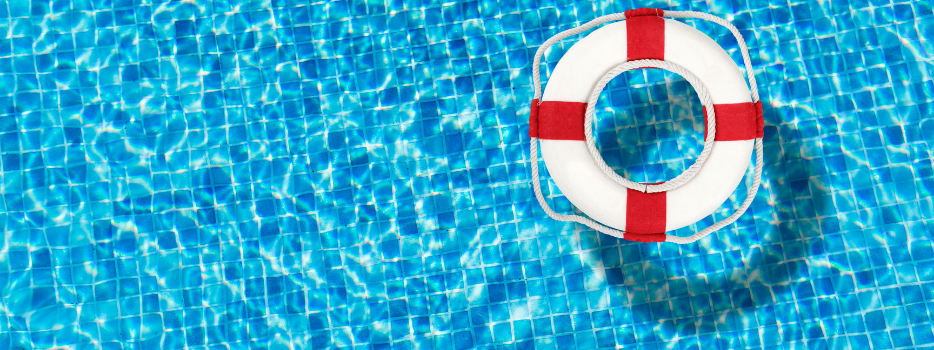Lifeguards play a critical role in maintaining pool safety, but their ability to perform effectively is often challenged by demanding work conditions, especially during the summer. Long hours in the sun; exposure to heat, wind, and rain; and the fatigue that comes from juggling multiple jobs or responsibilities can significantly affect their alertness and performance.
These environmental and physical stressors increase the risk of a tired, dehydrated guard who may not be fully capable of supervising the pool. That’s why strong safety policies go beyond just the initial guard certification. Regular in-service training sessions are key to helping lifeguards remain sharp and prepared to act quickly in emergencies. Because real-life rescues don’t happen every day, routine practice helps keep critical skills fresh and lifeguards rescue-ready.
Healthy habits
While organizations can’t dictate what their guards do outside of work, they can encourage their employees to get enough rest. Educating guards on the dangers of being fatigued on the job can help. Any lifeguard who’s falling asleep at work should be disciplined and potentially dismissed if they can’t change this behavior. A sleepy lifeguard isn’t effective. If guards are typically seated during their shifts, allow them to stand up and stretch to help them stay awake and alert.
Organizations can also ensure guards are given adequate opportunities to stay hydrated. Providing water bottles and encouraging guards to drink regularly can promote this healthy habit. When the weather is very hot, be sure lifeguards get adequate breaks to get out of the sun and cool off. Encouraging lifeguards to wear sunscreen, caps or visors, and sunglasses can protect them from the sun. Organizations can also ensure guards are getting enough swim practice by including swimming conditioning during all in-service training. Guards must be able to swim to wherever they need to in the pool and perform whatever rescue is needed.
The importance of in-service training
Requiring lifeguards to attend regular in-service training is an important part creating of a safe pool environment. It’s important for lifeguards to practice their skills regularly. The longer someone has been a guard, the farther away they are from their initial training. Without regular practice, how to execute rescue skills can fade from memory, especially because guards aren’t typically rescuing swimmers during every shift. Rescue skills are very important and there’s no room for error during an actual emergency. In-service training ensures guards are always rescue-ready.
To ensure regular training occurs, create an in-service schedule for the entire year. Provide the schedule to all lifeguards and let them know in-services are mandatory. Keep records of in-services with information including who attended and what topics were covered.
In-service training ideas
To get the most out of your training sessions, incorporate a variety of skills and activities, including:
- Basic and advanced rescues: Be sure to cover both basic rescue skills and more advanced rescues. Ensure deep-water rescues and spinal injuries are covered regularly so all guards are comfortable with the skills needed in these situations.
- CPR and AED training: Review CPR basics at each in-service to ensure these skills are fresh in everyone’s minds. It’s also a good idea to review where the automated external defibrillator (AED) is kept and when it should be used.
- Endurance and speed: Incorporate some endurance and speed swimming drills into your in-service schedule, as these are critical lifeguarding skills.
- Recognition and awards: Add some fun elements to the in-services like positive recognition and awards for different achievements to keep guards engaged and to help them retain the information covered.
Ultimately, ensuring a safe pool environment requires more than just having certified lifeguards on duty; it demands a commitment to their ongoing readiness and well-being. By recognizing the physical and environmental challenges lifeguards face, aquatics directors can take proactive steps to support them with proper scheduling, hydration, rest, and training. When lifeguards are both physically prepared and continually trained, they are far better equipped to protect swimmers and respond effectively when every second counts.






